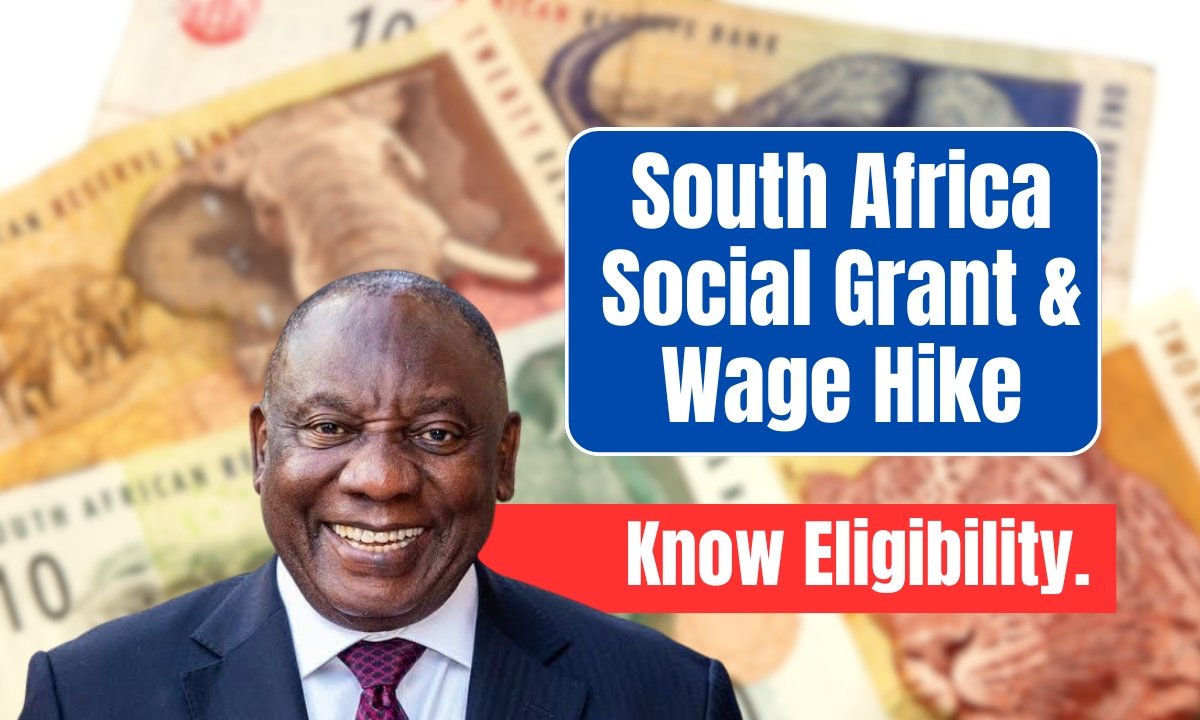A major issue of concern in South Africa is the economic disparity caused by inflation. To bridge this gap, the government enacted an annual increase in social grants and a minimum wage in 2025. Income levels are extremely low in South Africa. About 55.5% of the population is estimated to be living below the upper-bound poverty line, while about 5 million South Africans may have benefited from some form of social grant last year. These include pensioners, caregivers, and the unemployed. The article contains details on grant amounts and eligibility and application for the year 2025 into which updates have been made.
Social Grant Increases for 2025
The Social Relief of Distress grant has been increased from R350 to R370 monthly, providing much-needed distrese aid to unemployed persons with an income less< than>R595. Other key grants have also been adjusted:
- Older Persons Grant: R2,315 (ages 60–74), R2,335 (75+), increased R125 from 2024.
- Disability Grant: R2,315, for those that are permanently disabled.
- Child Support Grant: R560, with a R270 top-up for orphaned children.
- Foster Child Grant: R1,250, to assist foster caregivers.
- Care Dependency Grant: R2,315, for sections of care and maintenance provided for severely disabled children.The said increase of grants from April 2025 has been indexed aer inflation (5.2% in 2024) and it is supported by a budget of R284.8 billion for the year 2025/26. Adjustments in these payments may also be subject to quarterly or monthly adjustments depending on economic luminaries.
Minimum Wage Adjustment
The new minimum wage will come into effect in March 2025, with an hourly rate of R28.79 and equivalent to R2,265 per month for a 40-hour workweek. This increase supports low-income workers and stands in complement to assistance through grants to stabilize household incomes. Wage slips must indicate this rate, enabling employers to comply with the laws that uphold income equality and further economic growth.
Eligibility & Verification Requirements
Applicants must apply for social grants only if they:
- Are South African citizens, permanent residents, or registered refugees.
- Fall within income limits-those of R8,070 monthly for single applicants and R16,140 for couples.
- Provide a 13-digit smart ID. Green barcoded IDs lose acceptance from August 15, 2025.
- Update your bank details to arrange for the direct deposits.SASSA ensures stringent income verification owing to its integration with the SARS and UIF databases. When beneficiaries are caught for non-compliance, mainly by failing to declare income, in June 2025 alone, some 210,000 grants were suspended. Beneficiaries therefore must update their details by July 31, 2025, to remain unaffected.
Accessing Grants Without Delay
Grants are paid out through bank accounts, SASSA Gold Cards, or cash points like Pick n Pay. In order to facilitate timely payments:
- Update Records: Current ID, bank, and income details should be submitted on sassa.gov.za.
- Check Status: Status checks can be carried out via srd.sassa.gov.za, WhatsApp (082 046 8553), or USSD (1347737#).
- Appeal Suspensions: Where suspicions are raised, present evidence of eligibility within 30 days.SASSA’s helpline (0800 60 10 11) extends support, especially to the elderly or disabled beneficiaries.
Achievements and Road Ahead
These grants, a lifeline to 19.7 million beneficiaries by 2026, provide a reduction in the poverty rate and sustenance towards food and healthcare. The SRD grant extended to March 2026 intends to be promoted to a Basic Income Grant with the help of employment opportunities on the horizon. Besides, routine updates through legitimate channels will provide for optimal fair distribution and maintenance of the scheme.
Also Read: SASSA R370 SRD, Pension, Disability Grants, August: September Payment Dates Announced
